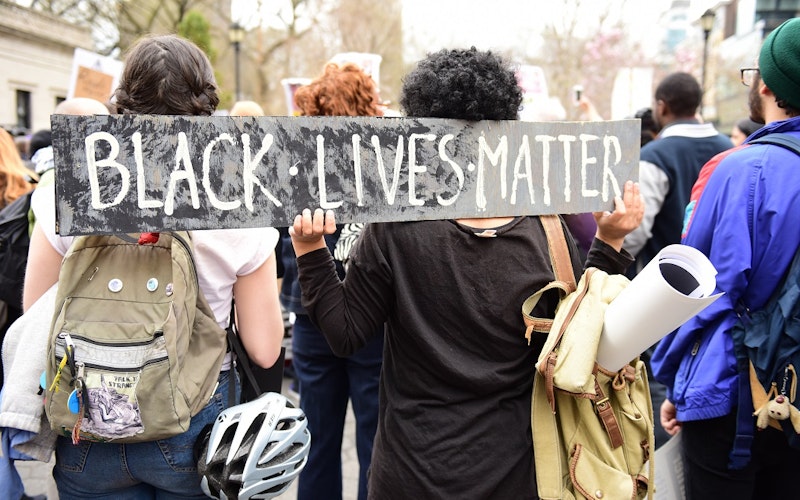
Culture At Large
White parents and Black Lives Matter
A couple months ago, a Black Lives Matter sign appeared in a neighbor’s yard. As we went for a walk, my 7-year-old asked, “Dad, what does that mean?” For white parents like me, this should not take a long time to explain — but not because I would give a dismissive, racist or simplistic response. On the contrary, I would argue that as a parent and as a Christian, it’s my job to make sure that my children are well aware of the history that has shaped the United States well before they encounter a Black Lives Matter sign, so much so that all I have to do is simply reference what I’ve already taught them about both the past and current events.
But white parents often simply don’t talk about race, as Po Bronson and Ashley Merryman point out. Indeed, a 2007 survey of families of 17,000 kindergarteners showed that 75 percent of white parents never or almost never talk about race. To me, that number is astounding and represents a kind of intentional ignorance. To be fair, Bronson and Merryman point out that white parents generally assume that the solution to racism is to move forward without bringing up the past or the present realities in our society. They assume that exposing their kids to a diverse environment or offering general platitudes like “everyone is equal” is enough.
But it’s not enough. My white kids need to know that when the Declaration of Independence said “all men are created equal,” it most certainly did not mean “all” (which is why I’m suspicious of simply saying “all lives matter”). They need to know that the original Independence Day did not mean independence for slaves. My white kids need to know names like Harriet Tubman, Rosa Parks, Martin Luther King Jr. and Malcolm X. My white kids need to know that they should respect the police, but they must also know about Tamir Rice. When I told them that a 12-year-old boy was killed by the police because he was brandishing a toy gun, my 7-year-old protested, “But that’s not fair!” What could I say? No, it’s not.
For white parents like me, this should not take a long time to explain.
If we face history honestly, it’s no wonder white parents don’t really want to talk about race. But to refuse to talk about the past — the good, the bad and the ugly — will only further distort and confuse the present. As Ta-Nehisi Coates writes, “They have forgotten, because to remember would tumble them out of the beautiful Dream and force them to live down here with us, down here in the world.”
I want to live in the real world, and I want my children to live in the real world. As a Christian, I gather with my church around the Lord’s Supper, and there I am told to remember, to not look away from a horrific, historical reality produced by sin: the brutalized body of Christ. If I want to forget, to look away from the bullet holes in black bodies, to turn away from the outcome of our centuries-old history, then why wouldn’t I want to forget, to look away from the nail holes in the hands of Jesus? In both cases, I could plead, “But I’m not really the one responsible for this. Somebody else pulled the trigger! Someone else pounded the nails!” I desperately want to run away from any appearance of guilt. But there’s something I’ve already taught my kids that should help with this conversation: they are sinners born into a sinful world. And if they are going to move from there, if they are going to be ambassadors of Christ’s reconciliation, then I must begin by telling them the truth. For only the truth will set them free.
Topics: Culture At Large, News & Politics, History, Justice, North America